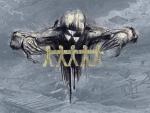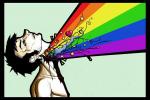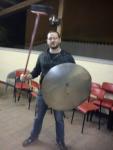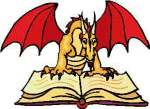One thing SE does amazingly well, and something that few authors have achieved (except - in my experience - Dostoevsky), is to create a 'convergence' of sorts within the experience of the reader, and create such an overwhelming sense of awe at, not only the sheer awesomeness of the event, but also of the writers ability to effect that upon us. It is quite a powerful force, one I am continually humbled by and one that gives me a sense of pride in humanity (which is odd given the grim world events that often inspire his work.)
There are many examples in the MBOTF. Convergence is not only something that occurs within the plot development of the story - i.e. a convergence of characters or events -, it is also the convergence of thematic threads, and also the convergence or, what I like to call condensation of events. Think of how steam condensates into water, becomes more unitary, is given on ordinal point a place to come together. An idea, feeling, emotion (or all of these) condensate; this event and the experience which is its effect upon the reading mind, is something Erikson has, in my view, mastered. The concept of convergence works on so many levels in Erikson's work, and does so under a very potent literary mode - that of the effect.
Nietzsche in many ways began this concept; and while it is not predominate in Erikson's style, he does utilize it very well. In a sense effect is something that is divorced from the intention of the author, it is born of the life of the work itself, which includes the written word as well as the reader and all the experiences that we bring to the table as readers. Erikson could no more predict how each of us would react than he could universalize an effect - i.e. make it common to all readers -; however, he does do a damned good job of creating effects within us that utilize our own notions of the world and we in turn reflect differently upon those notions.
Erikson's work is essentially expressive in the sense of being constructivist and vitalistic. It expands outward in all directions and its internal development and motion have such potency, such force as to almost challenge our own experiences of 'reality'. What is creation; what is real? What power does the writer bear in their creations? What is the truth of fiction or myth, of events and effects that flow from paper to the incorporeal zone that is the human mind? These I believe are Erikson's most beautiful concepts and ideas.
This post has been edited by Quick Bill: 27 July 2010 - 04:27 PM

 Help
Help
























